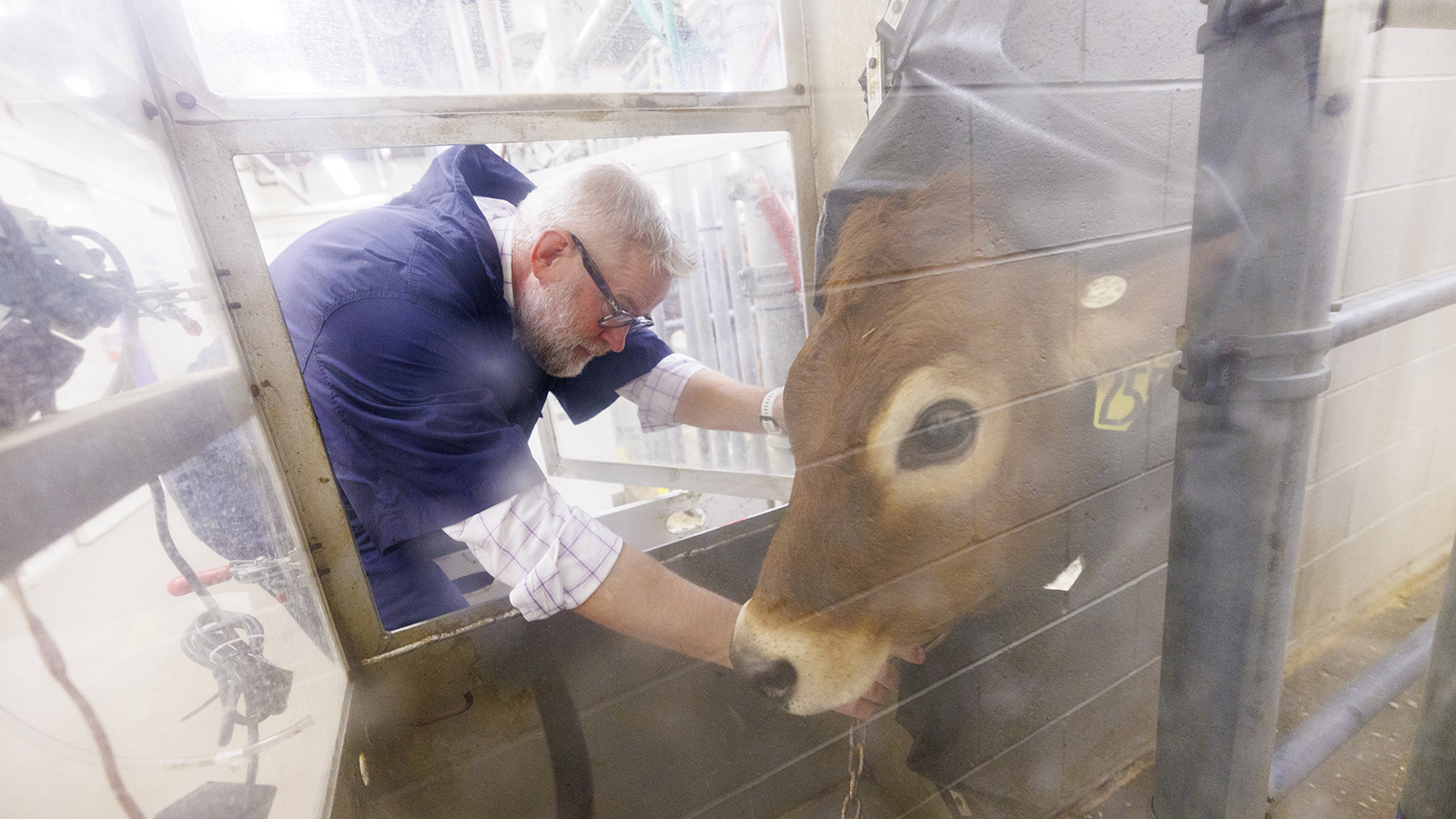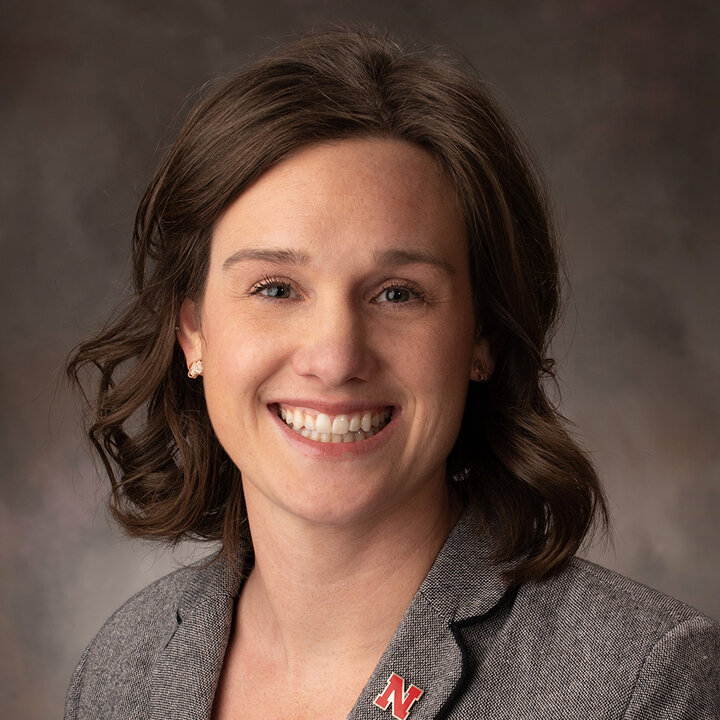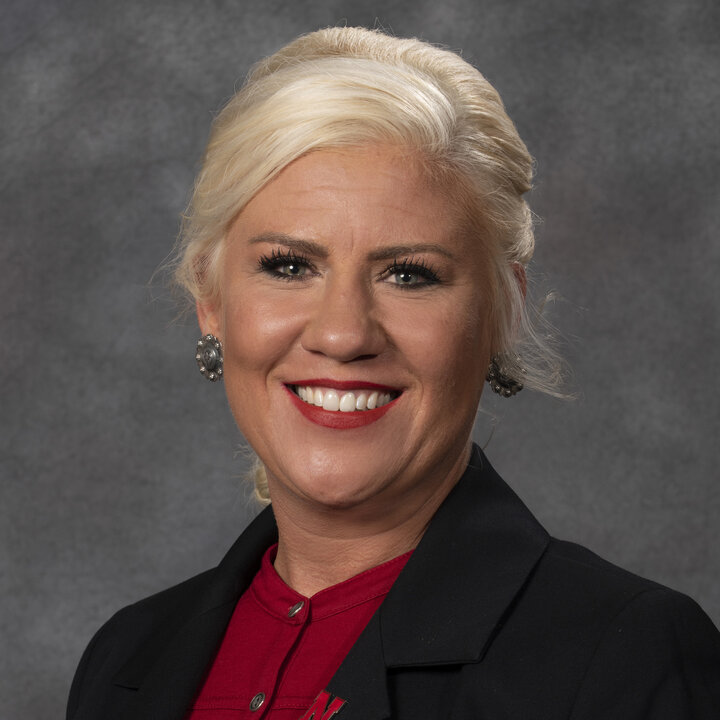Our ruminant nutrition research is centered on addressing the real-world challenges faced by the cattle industry. We are committed to advancing knowledge in efficient, profitable, and sustainable cattle production, conducting innovative research that has a significant impact in Nebraska and beyond.
Explore Our Research
University of Nebraska-Lincoln commits $5 million to better measure environmental impact of cattle
The University of Nebraska–Lincoln aims to better gauge the environmental impact of the ranching industry with a new $5 million grant. Researchers will study cattle in grazing systems at three of the university’s research facilities — the Eastern Nebraska Research, Extension and Education Center near Mead; Barta Brothers Ranch, southeast of Ainsworth; and Gudmundsen Sandhills Laboratory, near Whitman.
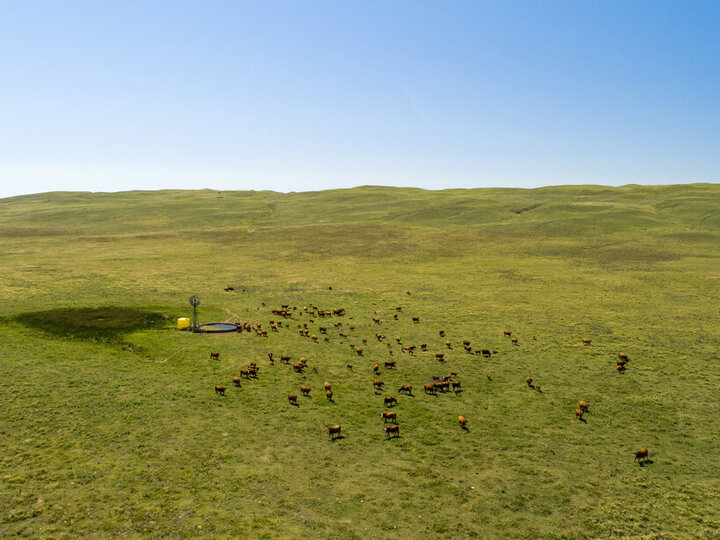
Beef Systems Initiative at ENREEC
The goal of the Beef Systems Initiative (BSI) is to develop and support implementation of beef production systems that optimize feed resource use, natural resource conservation, and producer success in Nebraska through improved management of perennial grasslands and systems of integrated crop-beef cattle production.
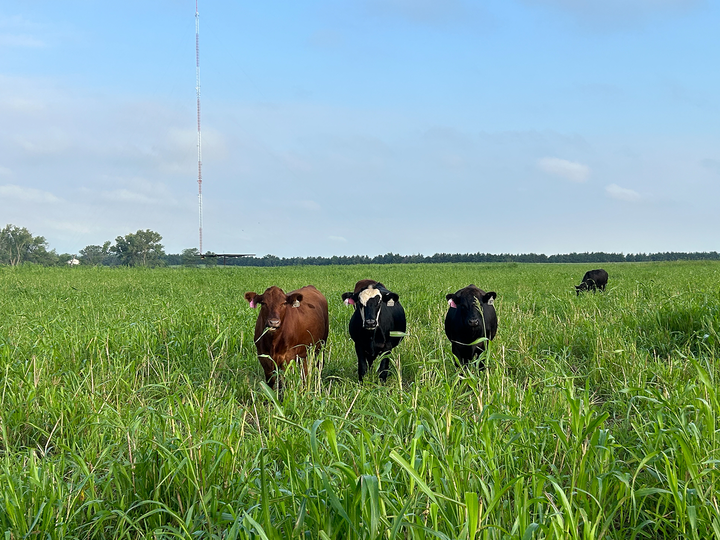
Beef Feedlot Research And Education at ENREEC
The ENREEC feedlot is a unique facility that shares similarities with feedlots across Nebraska, but its research components set it apart. Cattle are weighed multiple times to ensure accurate measures of growth. And depending on the research trials, different samples may be collected and analyzed such as fecal, manure, blood, or other types of samples.
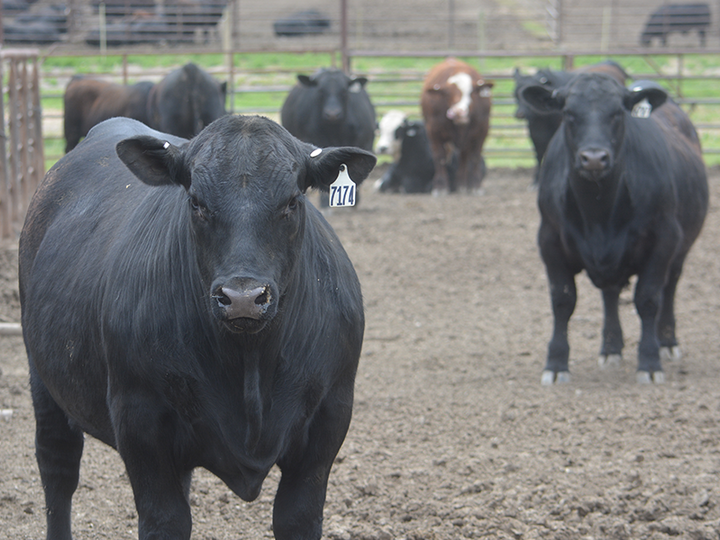
Husker team receives $5M grant to reduce methane emissions from cattle
A Husker research team has received $5 million from the U.S. Department of Agriculture to research more sustainable dairy and beef production. The funding, which is through the USDA’s National Institute of Food and Agriculture, is part of the U.S. government’s $10 million investment toward projects reducing intestinal methane emissions from ruminant animals.
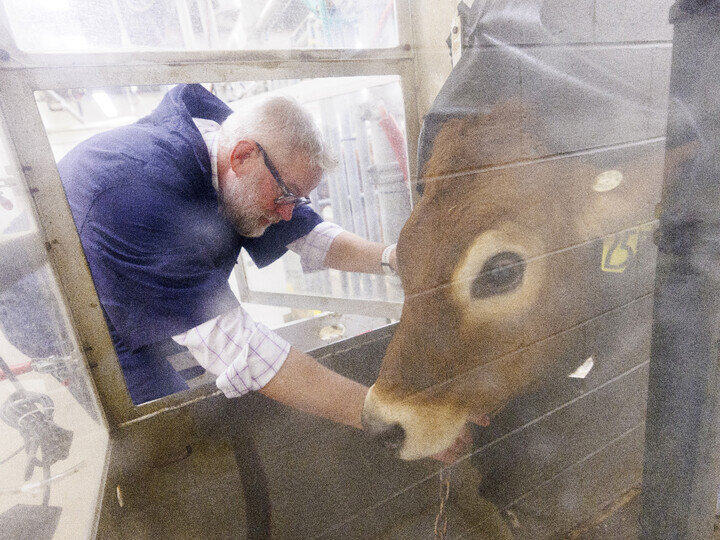
Ongoing Research Projects:
Carbon Footprint Quantification
- Measuring and assessing the impacts of management practices on the carbon footprint of cattle production to improve sustainability.
Microbiome and Methane Reduction
- Developing approaches to improve nutrient utilization and reduce methane emissions by manipulating the cattle microbiome.
By-products and Alternative Feeds
- Investigating the use of by-products and alternative feeds in beef and dairy rations to enhance cost-efficiency and sustainability.
Feed Additives for Finishing Cattle
- Exploring the use of feed additives to improve growth rates, efficiency, and profitability in finishing cattle systems.
Cow-Calf Production with Limited Forages
- Evaluating strategies for cow-calf production that address challenges posed by limited access to perennial forages.
Integrated Crop-Cattle Systems
- Studying the selection and grazing management of cover crops and annual forages to optimize both environmental and economic outcomes in integrated systems.
Nutrient Use in Dairy Cattle
- Investigating how different diets affect nutrient use, excretion, and energy utilization in lactating dairy cattle, with the goal of improving efficiency.
Gut Microbiome and Animal Health
- Examining how gut microbial structure and function influence animal nutrition, health, and performance in cattle.
Meet the Faculty
EMERITI: Don Adams (Beef Nutrition), Dennis Brink (Ruminant Nutrition), Charles Hibberd (Ruminant Nutrition), Terry Mader (Beef Nutrition & Production), Ivan Rush (Ruminant Nutrition), Jack Whittier (Ruminant Nutrition)
Agricultural Research Division
Supporting the Science to Ensure Resilient Food Systems and a Healthy Global Future
Through the dedicated and innovative work of Faculty and Staff based in 15 Academic Units across the Institute of Agriculture and Natural Resources (IANR) and College of Human Sciences, the Agricultural Research Division is able to help address the grand challenges of global food and water security by working to answer questions important to Nebraska and the World.

